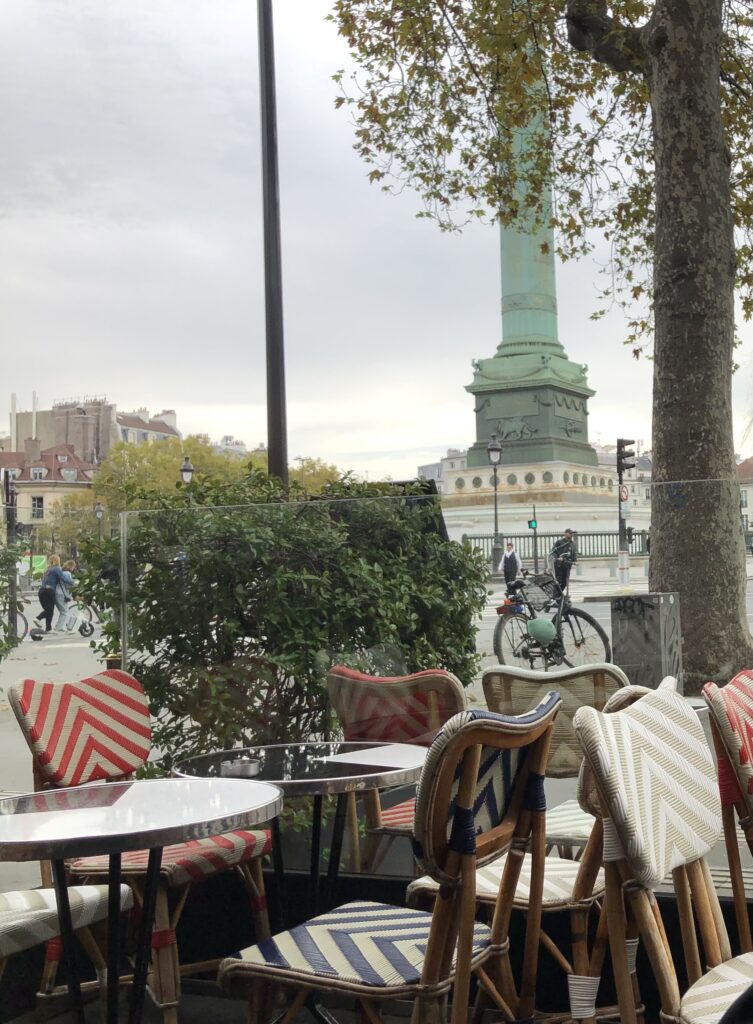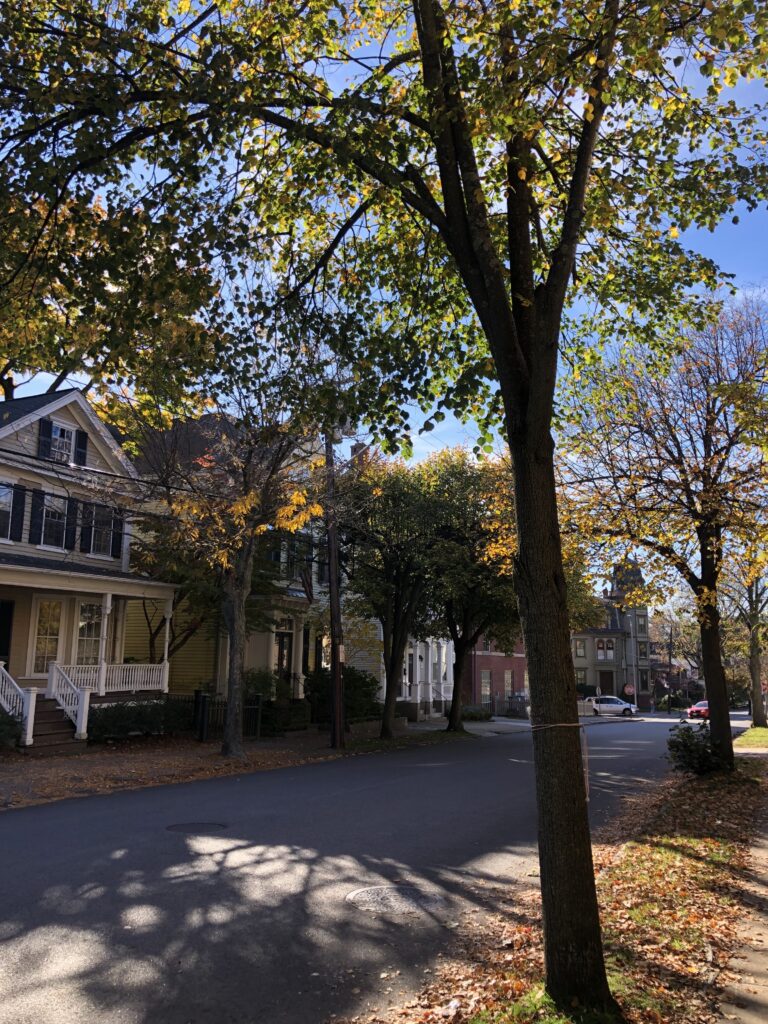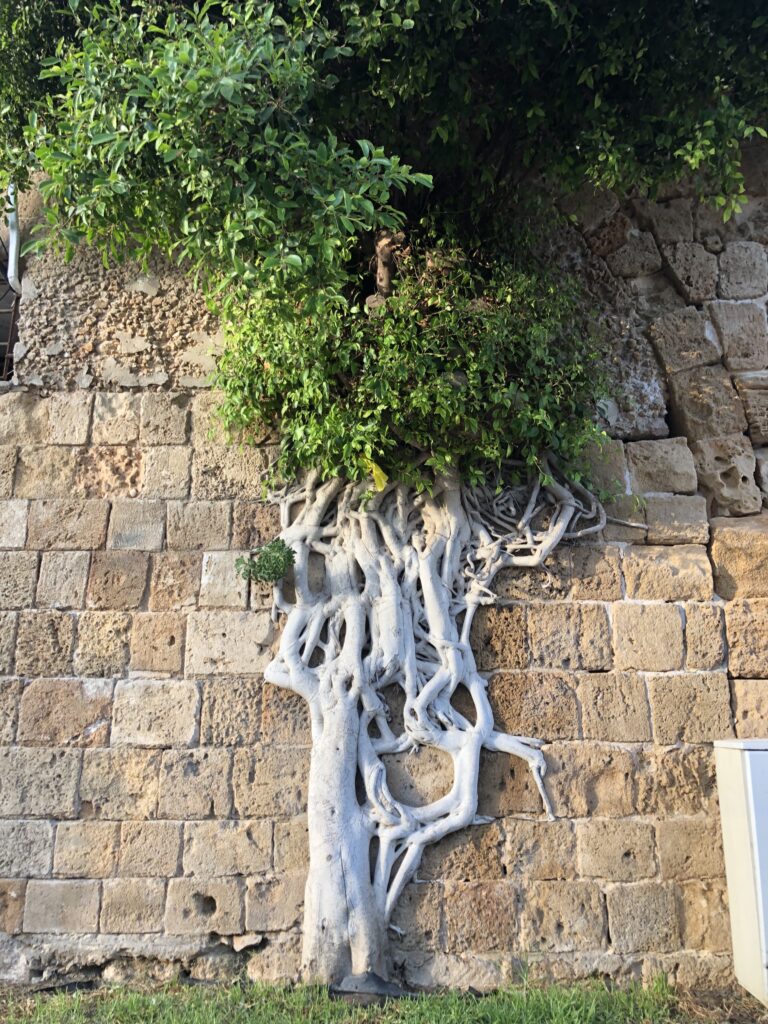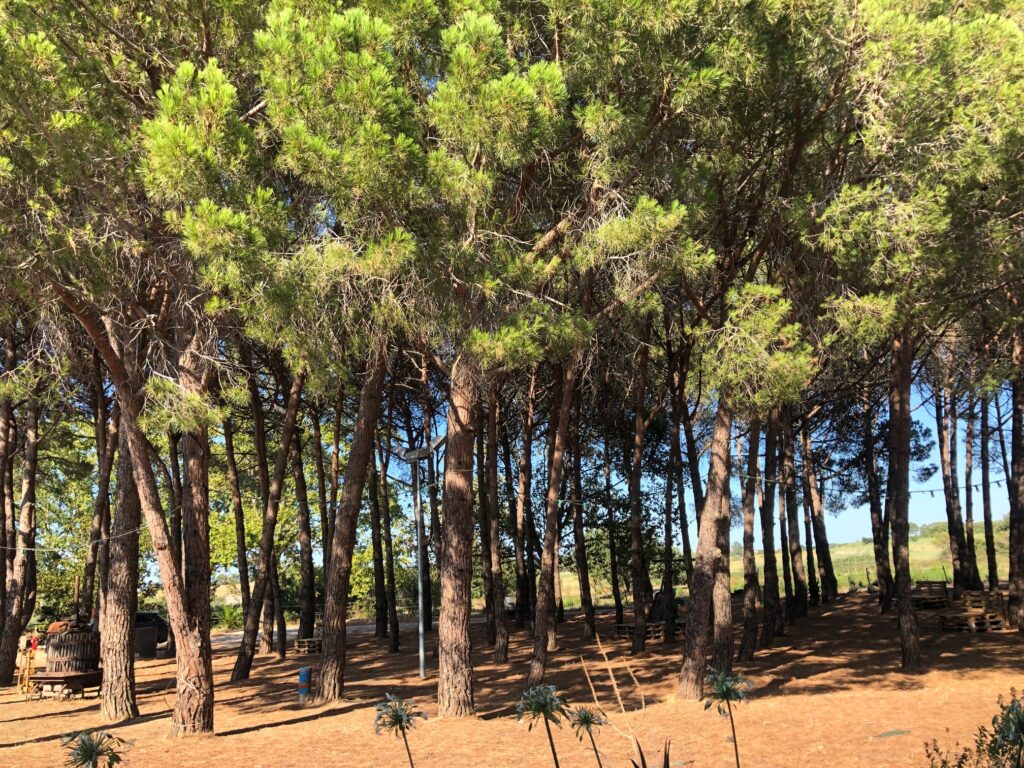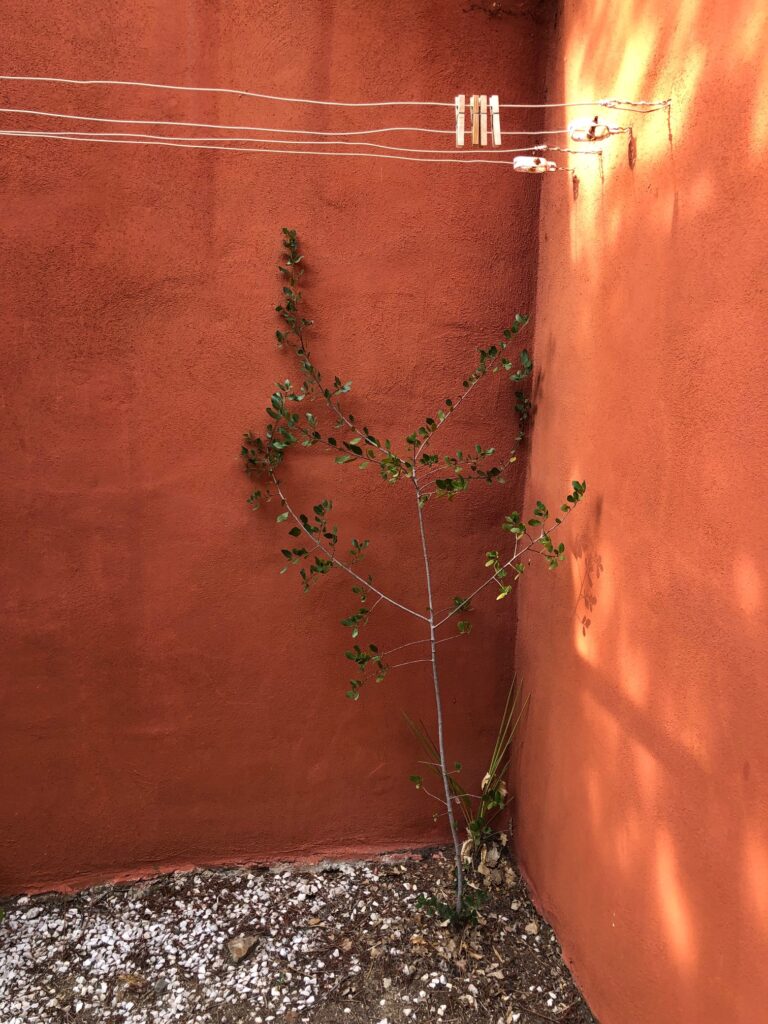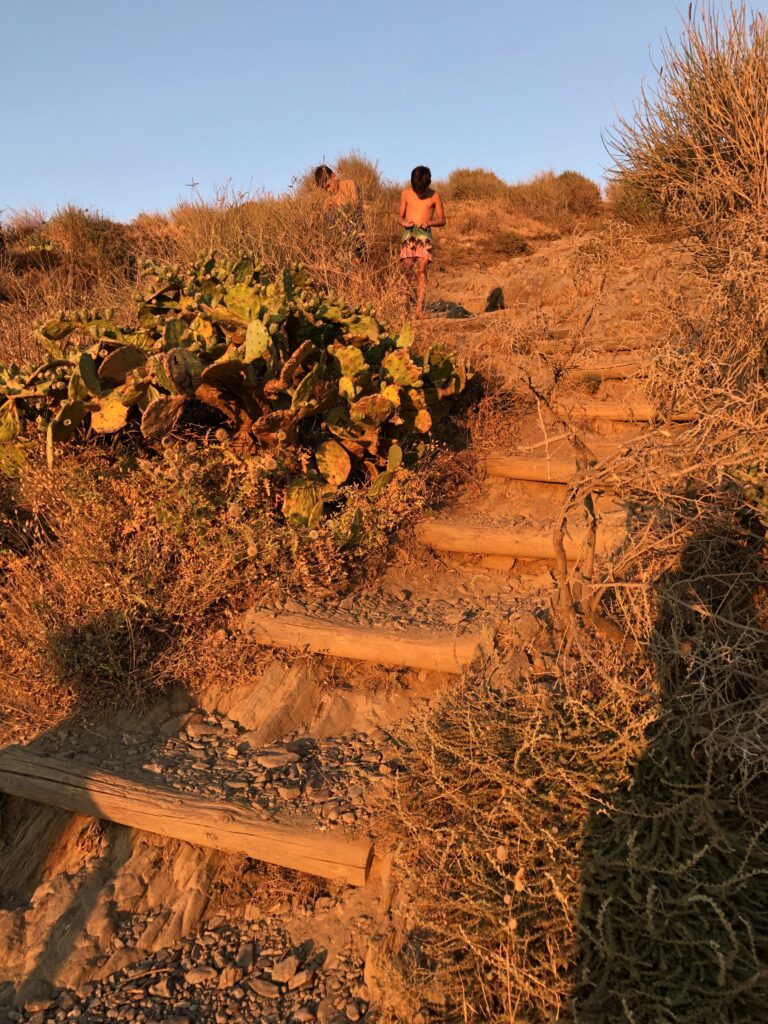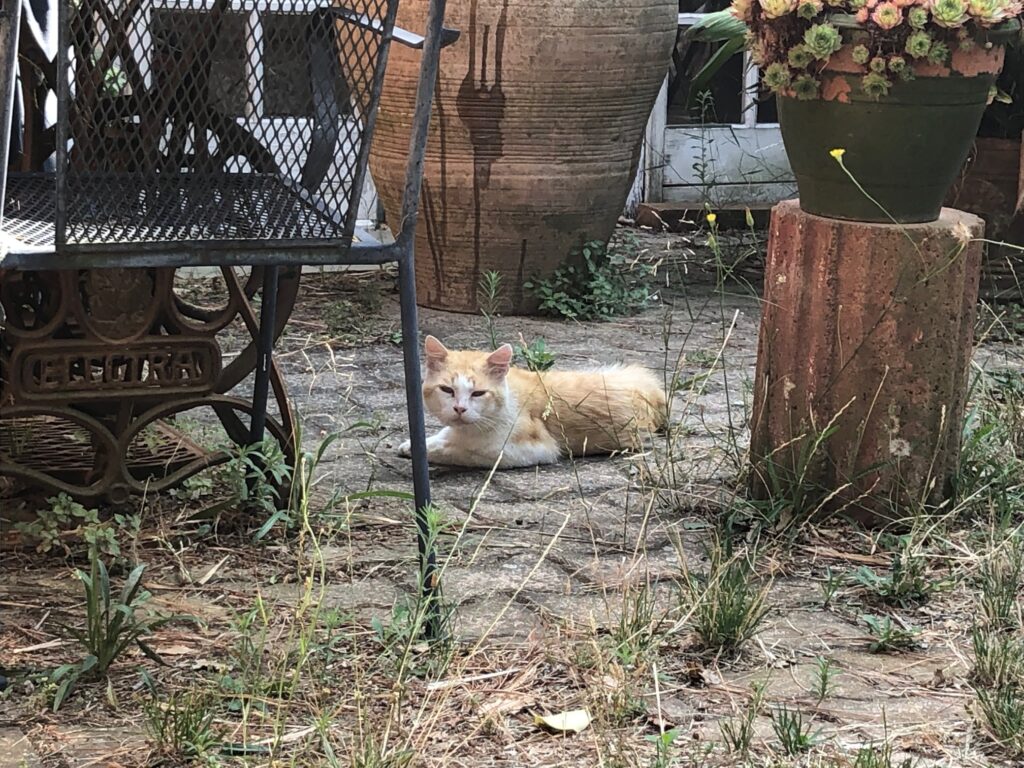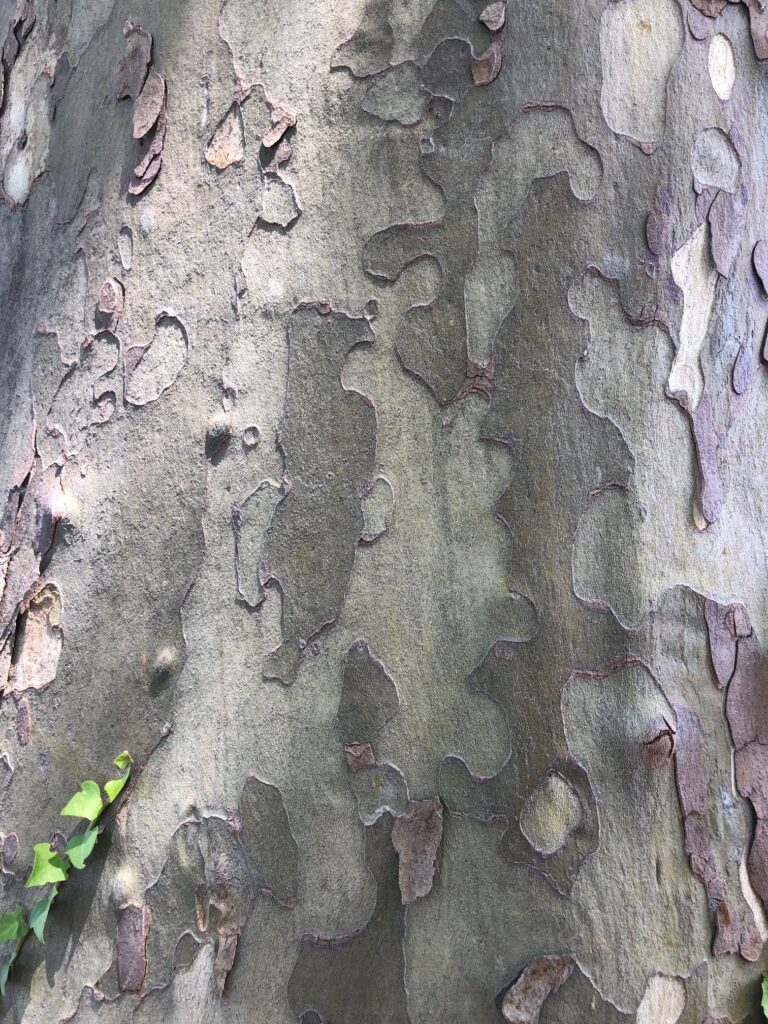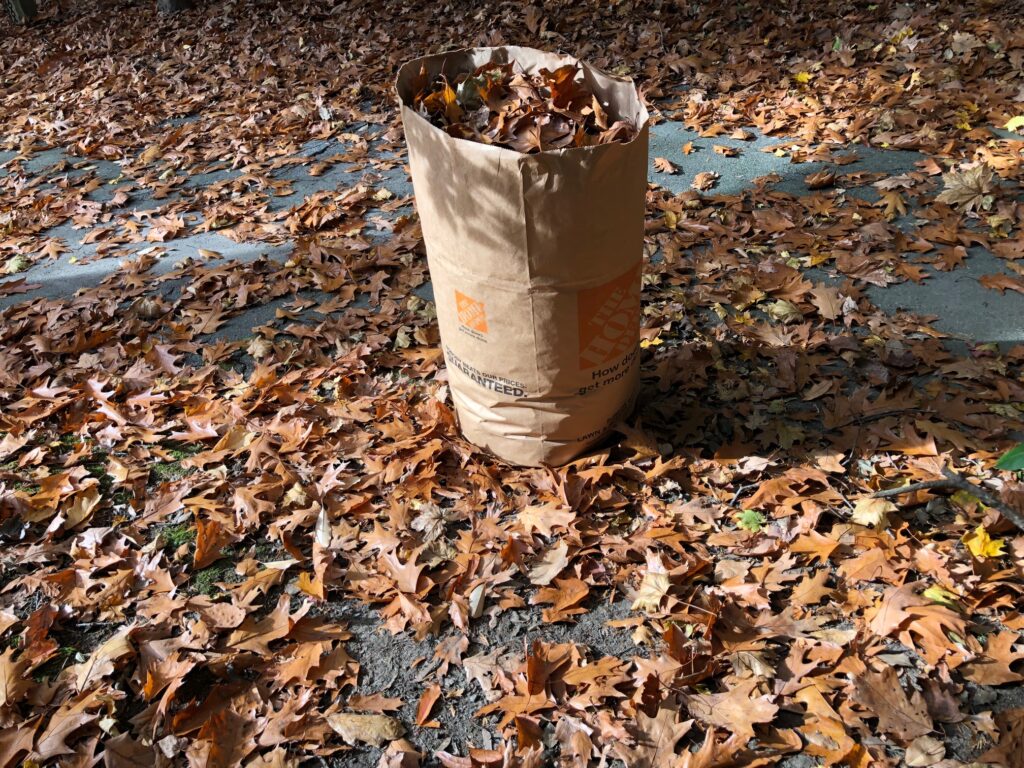
That patch of clean clear grass will last only as long as I stand there, brown elm leaves
falling around me, and yet I keep raking.
The sea of leaves will overtake us, as will early darkness.
I keep stuffing them in bags, happily trouncing.
Ask Job, I say joyously.
Clapping the piles to my chest: the only thing I can only believe in is the absurd.
Leaf them their, they’ll melt like snow, or will they?
Their crisp peering skins
the brown leaf, waves, the surging sea of them. If I made piles of leaves to jump in, the kids in the dorm next-door would all come for their goalless pleasure. In the name of decomposition.
Animals, funghi. There is always funk before recreation.

